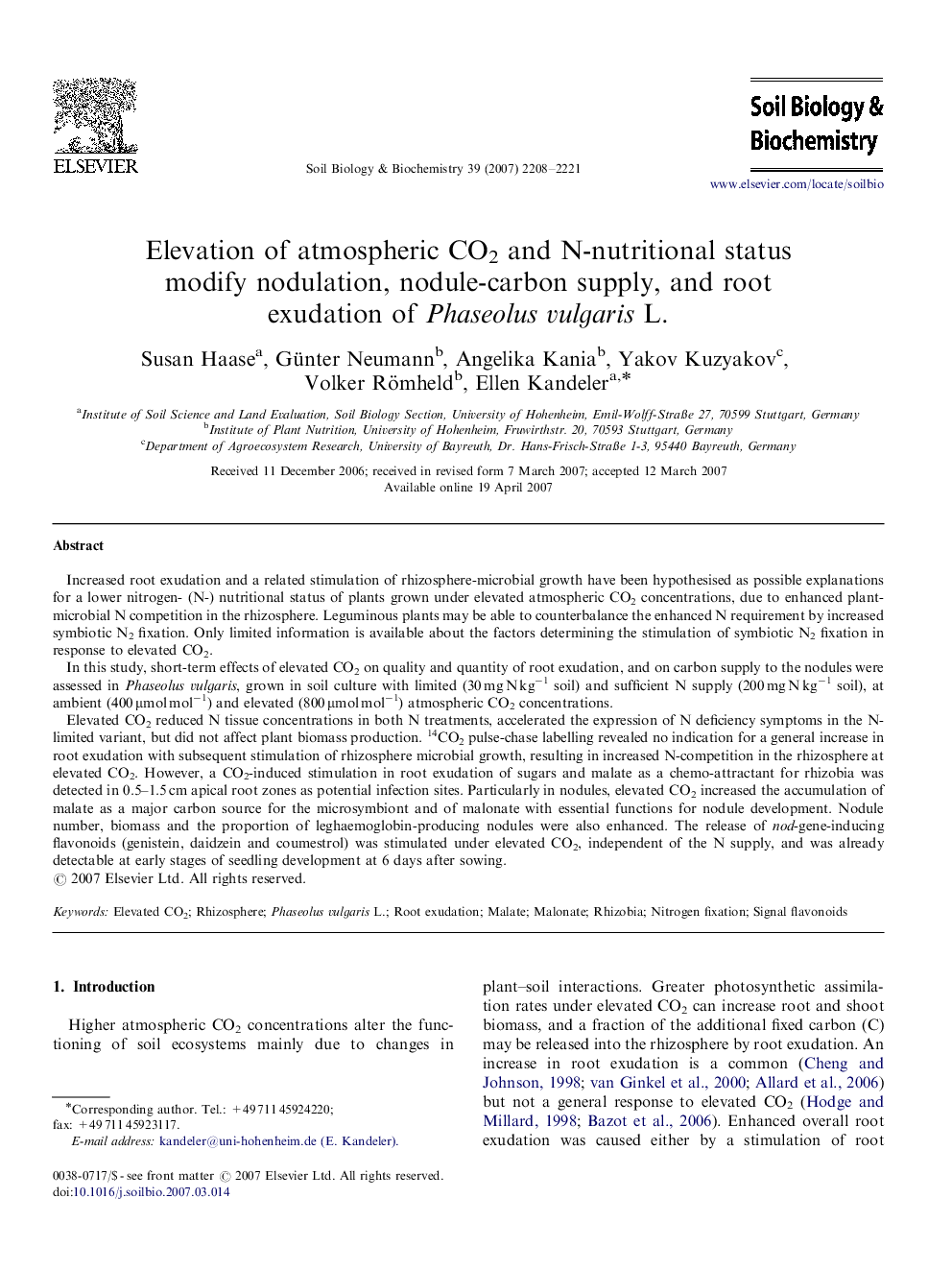| کد مقاله | کد نشریه | سال انتشار | مقاله انگلیسی | نسخه تمام متن |
|---|---|---|---|---|
| 2026178 | 1070022 | 2007 | 14 صفحه PDF | دانلود رایگان |

Increased root exudation and a related stimulation of rhizosphere-microbial growth have been hypothesised as possible explanations for a lower nitrogen- (N-) nutritional status of plants grown under elevated atmospheric CO2 concentrations, due to enhanced plant-microbial N competition in the rhizosphere. Leguminous plants may be able to counterbalance the enhanced N requirement by increased symbiotic N2 fixation. Only limited information is available about the factors determining the stimulation of symbiotic N2 fixation in response to elevated CO2.In this study, short-term effects of elevated CO2 on quality and quantity of root exudation, and on carbon supply to the nodules were assessed in Phaseolus vulgaris, grown in soil culture with limited (30 mg N kg−1 soil) and sufficient N supply (200 mg N kg−1 soil), at ambient (400 μmol mol−1) and elevated (800 μmol mol−1) atmospheric CO2 concentrations.Elevated CO2 reduced N tissue concentrations in both N treatments, accelerated the expression of N deficiency symptoms in the N-limited variant, but did not affect plant biomass production. 14CO2 pulse-chase labelling revealed no indication for a general increase in root exudation with subsequent stimulation of rhizosphere microbial growth, resulting in increased N-competition in the rhizosphere at elevated CO2. However, a CO2-induced stimulation in root exudation of sugars and malate as a chemo-attractant for rhizobia was detected in 0.5–1.5 cm apical root zones as potential infection sites. Particularly in nodules, elevated CO2 increased the accumulation of malate as a major carbon source for the microsymbiont and of malonate with essential functions for nodule development. Nodule number, biomass and the proportion of leghaemoglobin-producing nodules were also enhanced. The release of nod-gene-inducing flavonoids (genistein, daidzein and coumestrol) was stimulated under elevated CO2, independent of the N supply, and was already detectable at early stages of seedling development at 6 days after sowing.
Journal: Soil Biology and Biochemistry - Volume 39, Issue 9, September 2007, Pages 2208–2221